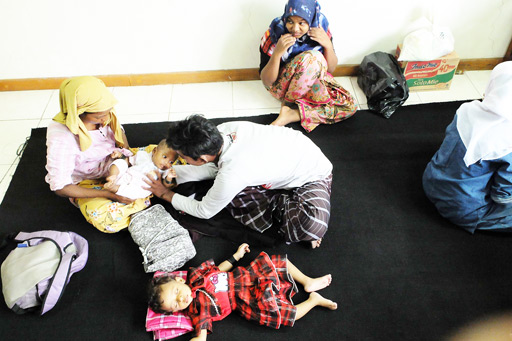Sudah hampir genap lima bulan semenjak berita kematian Ratu Opera Batak, Zulkaidah Harahap, diberitakan di berbagai media online dan cetak di Indonesia. Tetapi, terkadang masih ada perasaan tidak percaya bahwa sosok perempuan hebat ini, yang sempat menjadi salah satu narsum saya untuk sebuah tulisan mendalam mengenai Opera Batak, telah tiada.
Haru rasanya mengingat saya pernah berkesempatan untuk mewawancarai perempuan yang tangguh ini. sebuah kesempatan dari Tuhan yang saya syukuri, bahwa saya bisa bertemu dengan ibu Zulkaidah dan mendengarkan cerita-cerita personal langsung dari beliau.
Zulkaidah adalah perempuan yang berbeda dari zamannya, sekitar tahun 1950an. Zaman di mana perempuan yang memilih untuk mengejar mimpinya, masih dianggap sebagai sesuatu yang tabu, dosa dan bahkan hina.
Kala itu, Zulkaidah bercerita pada saya, pilihannya untuk terus mengejar mimpinya, untuk berteater mesti dibayar mahal dengan sebuah stigma “sampah masyarakat”!
Tetapi, toh Zulkaidah terus pantang mundur. Hingga akhirnya, sang keluarga memilih untuk menyerahkannya pada sang Opung, pendiri teater di kampungnya.
Kegemaran Zulkaidah pada teater bukan sebuah paksaan. Hal tersebut muncul secara alamiah ketika Zulkaidah kecil sering melihat pertunjukkan opera Batak keliling. Dia bercerita, bagaimana perempuan itu menyelinap masuk ke dalam pertunjukkan tanpa membeli tiket dan terkagum-kagum dengan aksi para pemain di atas panggung.
Meski, keinginan hanyalah keinginan dan jalan menuju sukses tidak hanya bisa dilandaskan atas sebuah keinginan.
Perjalanan Zulkaidah sendiri menemui banyak hambatan. Ketika pertama kali bergabung dengan kelompok opera Batak milik Tilhang Gultom, Zulkaidah tidak mendapatkan peran apapun melainkan sebagai juru masak. Dia dianggap tidak bisa bermain teater. Tambahan, penyakit campak yang dideritanya, membuat penampilan Zulkaidah buruk rupa karena lepuhan-lepuhan kulit. Teman-teman satu grup nya pun sempat menjauhinya.
“Saya suka sedih kalau teringat dengan Ibu dan melihat kenyataan yang -saat itu – saya alami, bahwa saya bukanlah siapa-siapa di dunia opera Batak,” cerita Zulkaidah pada saya saat itu.
Tetapi, lihatlah Zulkaidah dalam beberapa tahun setelahnya. Dia menjadi perempuan ikon opera Batak, akibat kecintaan dan dedikasinya yang tulus akan dunia teater tradisional.
Indonesia bangga memiliki seorang puteri bangsa seperti sosok Zulkaidah, yang berani keluar dari pakem, berani menentang stigma masyarakat dan menjalani keyakinannya dengan penuh kesungguhan serta rasa tulus. Mudah-mudahan kita semua bisa belajar banyak dari beliau dan memiliki keberanian yang sama dalam menjalani hidup. amin.

